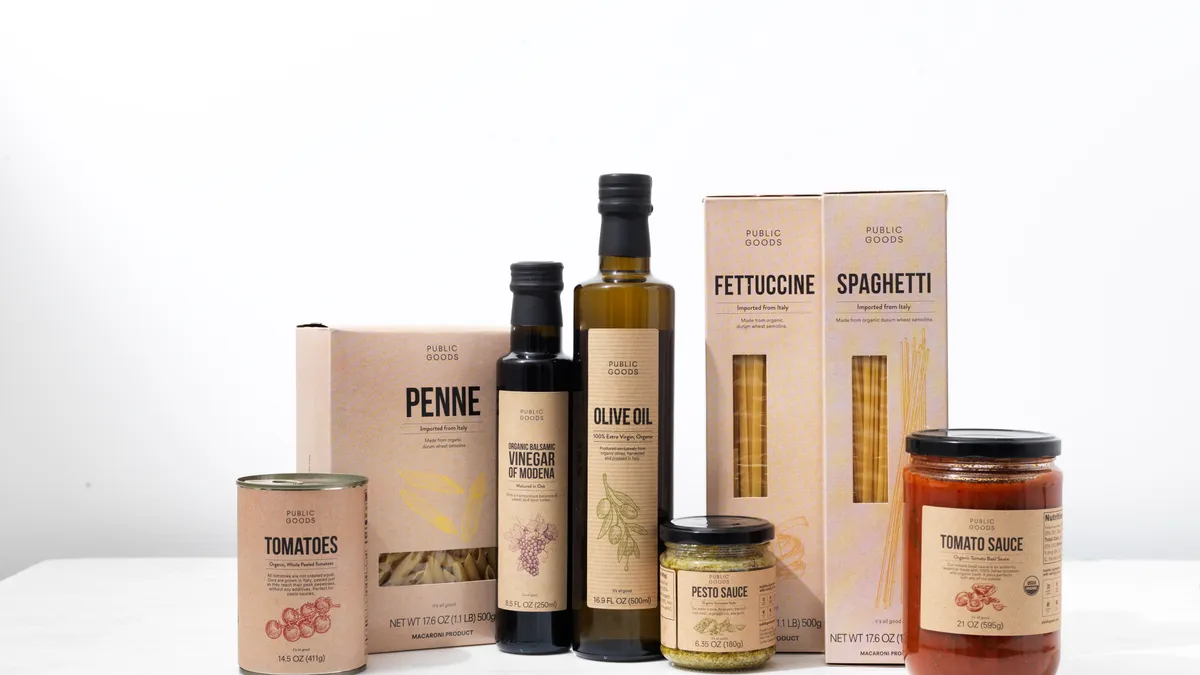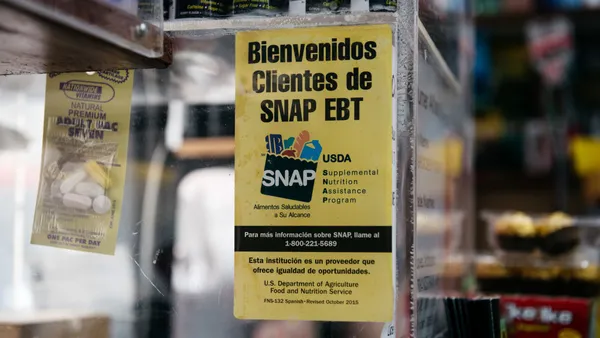Dive Brief:
- Pharmacy chain CVS is now stocking grocery and personal care products manufactured by online retailer Public Goods at more than 2,000 stores, according to a press release. The rollout follows a successful pilot in a handful of stores beginning in January.
- Public Goods is selling more than a dozen best-selling grocery products at CVS, including gluten-free chocolate chip cookies, seaweed snacks, candied pecans and organic sea salt popcorn. Personal care products include shampoo, conditioner, face cleanser and deodorant. Public Goods products will appear in slim merchandising towers within their respective aisles at CVS stores, a company spokesperson said.
- This marks the first time Public Goods, which launched in 2017, has sold products inside a brick-and-mortar store. “Initially, we didn’t see Public Goods fitting into stores that sell a lot of different brands since we focus on one perfect product for each SKU,” CEO Morgan Hirsch said in a statement. “But the more we considered this partnership, the more I saw how our brands aligned in value and mission.”
Dive Insight:
Public Goods makes and sells sustainably sourced, better-for-you products that appear in sleek, minimalist packaging that seems made for shelf presentation. The approach is similar to that of fellow e-commerce competitor Brandless, which shut down earlier this year and has now rebooted under new leadership — and which is also pursuing brick-and-mortar deals, according to its new CEO.
Founded in 2015 under the name Morgans, Public Goods has steadily built up a membership base that pays $59 annually to shop the site’s discounted goods. It started out selling personal care and home goods and leapt into grocery early last year with more than 60 SKUs. It now stocks products like oatmeal cups, tortilla chips, popcorn and bags of coffee.
During the pandemic, Public Goods has seen 5x growth and is now looking to reach new shoppers through the CVS deal, which acts as a marketing function in addition to a new revenue stream.
Other direct-to-consumer sites have made the leap to brick-and-mortar retail in recent years, such as Harry’s, which sells personal care products in Target stores, and SmileDirectClub, which makes dental hygiene products available at Walmart and Sam’s Club locations. The partnerships can give a boost to e-commerce sites, which often struggle with brand recognition, and offer retailers products that are on-trend and often have a built-in fan base.
E-tailers like Boxed have tried to get their grocery products into stores. But food and beverage is a particularly difficult channel to break into because of the glut of brands already on the market, and because retailers have had so much success making and selling their own labels.
Pharmacy chains like CVS, meanwhile, are looking for ways to keep shopper engagement high during the pandemic while also tapping into rising grocery sales. Competitor Walgreens now offers groceries and other packaged goods through its pharmacy drive-thru windows. It also formed a purchasing organization with Kroger late last year and offers mini Kroger-branded grocery outlets at dozens of locations.













